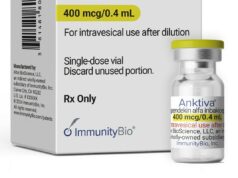
Merger and acquisition activity in healthcare is shifting from the purchase of smaller, independent hospitals to regional partnerships among health systems, according to a new report by healthcare consultancy Kaufman Hall.
In the second quarter of 2021, there were 14 announced transactions, which fell below recent pre-pandemic historical averages. But, similar to trends seen in the first quarter of the year, the smaller number of transactions was offset by a more deals with seller revenues above $500 million.
In fact, average seller size by revenue was $604 million for Q2 2021 — well above historical averages for the same quarter in previous years.
Further, Q2 2021 saw the fourth-highest total transacted revenue figure compared with those of second quarters in years past, totaling $8.5 billion.
As M&A turned toward regionalization, Q2 activity was concentrated in the Southeast, with Georgia alone accounting for three transactions involving eight hospitals and approximately $1.5 billion in transacted revenue.
There was one “mega merger” — that is, a merger in which the smaller partner or seller has average annual revenues in excess of $1 billion — announced in this quarter: the combination of Southfield, Michigan-based Beaumont Health System and Grand Rapids, Michigan-based Spectrum Health, which will create a system with approximately $13 billion in annual operating revenue if the deal is approved. Further, there were three transactions with seller revenues between $500 million and $1 billion.
Other regional partnerships announced this quarter include Meridian, Mississippi-based Rush Health Systems planing to merge with New Orleans-based Ochsner Health, and Atlanta-based Piedmont Healthcare planning to acquire four Georgia hospitals from Nashville, Tennessee-based HCA Healthcare.
“For health systems, regionalization strategies often focus on building services, capabilities and alternative sites within a defined geography — a capability that proved particularly important for many communities at the height of the Covid-19 pandemic,” said Anu Singh, managing director and leader of the partnerships, mergers and acquisitions practice for Kaufman Hall, in an email. “A robust regional market presence can also help health systems offer the scale needed to partner with health plans and employees on population health initiatives.”
In addition to scale, regionalization provides systems with local knowledge, which is essential in healthcare.
Even in neighboring markets, local conditions can vary significantly, Singh said. Partnerships with well-established organizations can be used to leverage that all-important local knowledge within a newly combined organization or new venture.
Photo: mediaphotos, Getty Images








